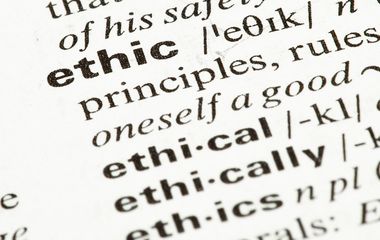
About Us
The Standards Commission is an independent body whose purpose is to encourage high ethical standards in public life through the promotion and enforcement of Codes of Conduct for councillors and those appointed to the boards of devolved public bodies.
Elected Member Safety
8th April 2024
It has been well-documented that the polarisation of politics and relative anonymity afforded to users of social media has led to an increase in the abuse and vitriol directed at politicians, including elected members of local authorities.
Politicians and others in public life know that not everyone will agree with their views and decisions, and understand that members of the public have a right to make their own opinions known. It is not acceptable, however, for elected members to face violence, threats, personal abuse or to otherwise be made to feel unsafe.
A successful democracy relies on there being a sufficiently large and sufficiently diverse group of individuals who are willing to stand for public office. Those from minority or under-represented groups are more likely to be the subject of disrespectful and bullying behaviour, which in turn then has an effect on whether they will choose to enter or remain in politics. Additionally, having to face personal attacks can have a hugely detrimental impact on an individual’s mental health and, in some instances, can lead to people resigning or deciding not to stand for election.
In advance of council elections in England on 2 May 2024, the Local Government Association (LGA) has urged Ministers to amend legislation that requires the publication of the home addresses of elected members in England and Wales. While these can be withheld if there are worries about threats or intimidation, the LGA has argued that not publishing addresses should become the default, noting that the requirement to do so leaves elected members feeling under threat amid rising concerns about the scale of intimidation and abuse in local government, and the impact it is having on women in particular.
In Scotland, it was agreed when Ministers issued the revised Councillors’ Code of Conduct in December 2021, that elected members are required to provide the Council’s Monitoring Officer with the full addresses of any houses, land and buildings they own or have any other right or interest in. However, there is no longer any requirement for any full address they provide to be disclosed on the Council’s website or otherwise made publicly available. It is sufficient for the purposes of an elected member’s publicly available register of interests for them to simply identify the Council ward in which the property is located - for example, for them to register that they own a residential property in the West End ward, Dundee.
There are resources available aimed at helping elected members feel safe. COSLA runs briefing sessions on elected member safety – please see its weekly Elected Member Briefings at Elected Members Briefings | COSLA for upcoming dates. The Local Government Association has a section on its website that provides practical advice for handling physical abuse and personal security. In addition, the Improvement Service has produced a video on personal resilience, as part of its elected member webinar series.
The Standards Commission would also urge elected members to lead by example, and to abide by the provisions in the Code that require them to be respectful at all times and to refrain from bullying or harassment, including when using social media. This helps ensure the tone of public debate does not fall below a minimum level. It also helps to ensure that the public has trust and confidence in those in public life. If politicians fail to act with integrity or are rude or disrespectful (or if they fail to address such behaviour in others), then such conduct is reinforced or normalised, and can even encourage threatening or abusive behaviours.

